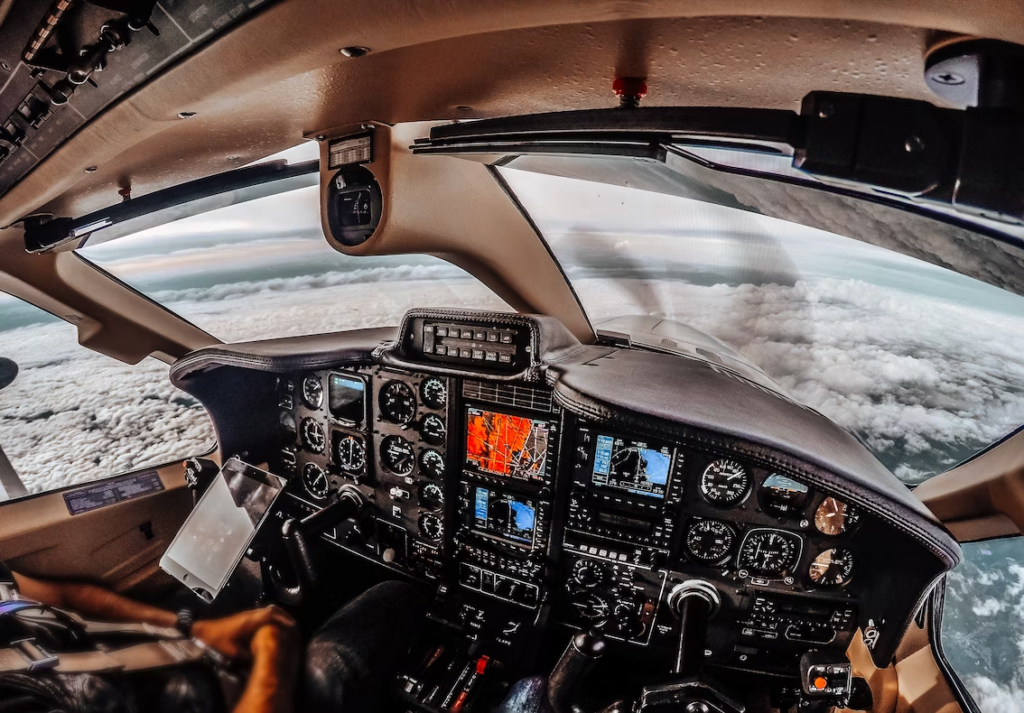
Have you ever dreamt of soaring through the skies, commanding a powerful aircraft, and exploring the world from a unique perspective? Becoming a pilot is a thrilling and rewarding career choice that offers incredible opportunities for personal growth, travel, and lifelong learning. If you’ve always been fascinated by aviation and have a passion for flying, this comprehensive guide will provide you with essential information and insights to help you navigate the path toward fulfilling your dream of becoming a pilot. So buckle up and let’s take off on this exciting journey!
Understanding the Path to Becoming a Pilot
The first step in your journey to becoming a pilot is understanding the different paths and requirements involved. There are several routes you can take, such as private pilot, sport pilot, recreational pilot, or commercial pilot. Each path has its own set of requirements, training programs, and career prospects. Namely, flight school duration can vary depending on the type of pilot license you’re pursuing and the training program you choose. The duration can range from several months to a couple of years. For example, if you’re aiming for a private pilot license (PPL), the training can typically be completed in around 3 to 6 months, depending on factors such as your availability, weather conditions, and the flight school’s curriculum.
Educational Requirements and Training Programs
To become a pilot, you’ll need to complete the necessary education and training programs. Depending on the type of pilot license you’re pursuing, you may need a minimum of a high school diploma or equivalent. The next step is to enroll in a reputable flight school or aviation academy that offers comprehensive pilot training programs. These programs typically include ground school instruction, flight simulator training, and hands-on flight training under the guidance of experienced flight instructors.
Flight Hours and Experience Building
Building flight hours and gaining experience is a crucial parts of becoming a pilot. As you progress through your training, you’ll need to accumulate a certain number of flight hours to meet the requirements for your desired pilot license. Take advantage of opportunities to fly solo, practice different maneuvers, and gain experience in various weather conditions. Additionally, consider joining aviation organizations or clubs that offer opportunities for networking, mentorship, and flight experience building.
Licensing and Certification
Obtaining the necessary licenses and certifications is a significant milestone on your journey to becoming a pilot. Depending on your career goals, you may need to acquire a private pilot license (PPL), instrument rating, commercial pilot license (CPL), or airline transport pilot license (ATPL). Each license has specific requirements and involves written exams, practical flight tests, and medical certifications. It’s essential to familiarize yourself with the requirements set by the aviation authorities in your country or region.
Continuous Learning and Skill Development

Aviation is a dynamic industry that requires continuous learning and skill development. Even after obtaining your pilot license, it’s important to stay updated with the latest regulations, technologies, and best practices. Consider pursuing advanced training programs, attending seminars and workshops, and participating in recurrent training to enhance your skills and knowledge. Additionally, joining professional aviation associations and staying connected with fellow pilots can provide valuable networking opportunities and access to ongoing educational resources.
Career Opportunities and Specializations
Becoming a pilot opens up a wide range of career opportunities and specializations. You can choose to work as a commercial pilot for an airline, fly charter planes, work as a flight instructor, or explore other aviation-related professions such as aerial photography, search, and rescue, or agricultural aviation. It’s important to research the different career paths and consider your personal preferences, lifestyle, and long-term goals when deciding on a specialization.
Personal Attributes and Skills
Being a pilot requires more than just technical knowledge and flying skills. It’s essential to possess certain personal attributes and skills that contribute to your success as a pilot. These include excellent communication and teamwork skills, critical thinking and problem-solving abilities, adaptability, situational awareness, and a strong commitment to safety. Developing these attributes and continually honing your soft skills will not only enhance your performance as a pilot but also make you a valuable asset to any aviation organization.
Financial Considerations and Funding Options
Becoming a pilot involves a financial investment, and it’s important to consider the costs associated with training, licensing, and ongoing expenses. Research and evaluate different funding options such as scholarships, grants, loans, or sponsorship programs offered by aviation organizations, educational institutions, or airlines. Additionally, explore opportunities for part-time employment in the aviation industry, which can help offset some of the costs while gaining valuable experience.
Safety and Well-being
Safety should always be a top priority for pilots. Stay committed to maintaining a high level of safety in all aspects of your training and career. Stay updated with safety regulations, adhere to standard operating procedures, and undergo regular medical check-ups to ensure your physical and mental well-being. Additionally, practice self-care, manage stress effectively, and maintain a healthy work-life balance to ensure a long and fulfilling career in aviation.
In conclusion, becoming a pilot is an exciting and fulfilling career choice that requires dedication, perseverance, and a genuine passion for aviation. By understanding the path, acquiring the necessary education and training, building flight hours and experience, obtaining licenses and certifications, and continuously developing your skills, you can set yourself on the path to a successful career as a pilot. So buckle up, chase your dreams, and let your aspirations soar high in the sky!












